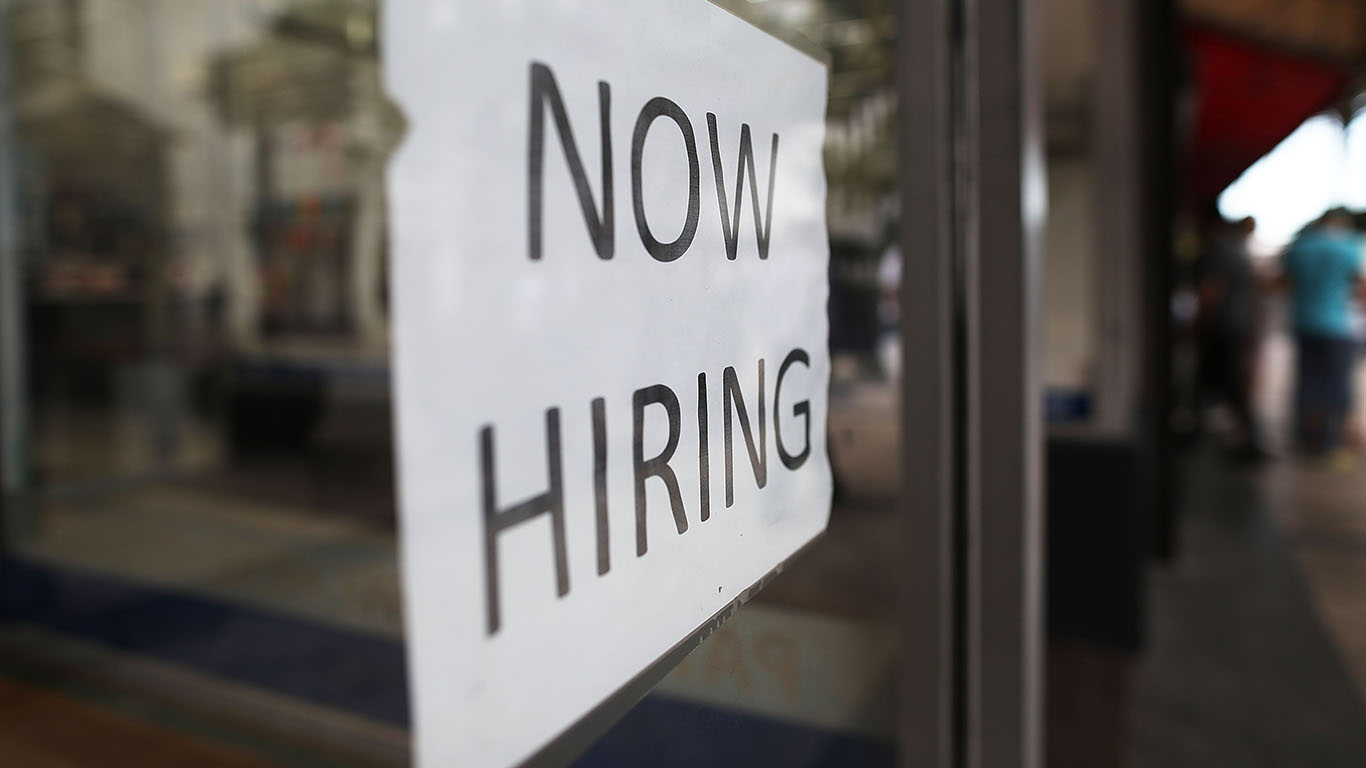Jobs
This Is the City Where People Expect to Make Less Money

Published:
Last Updated:

The unemployment situation in the United States has improved dramatically since the early days of the COVID-19 pandemic. The national jobless rate reached 14.7% in April 2020, well above the worst rates of the Great Recession. Slowly, the job market recovered. Last month, the national unemployment rate was 5.9% as the economy added 850,000 jobs.
One challenge for employers today is that there are more open jobs than there are people to fill them. The U.S. Bureau of Labor Statistics reports that at the end of May there we 9.2 million job openings. “Hires,” a BLS term, however, were only 5.9 million. The spread shows just how difficult the labor market is for many American companies.
One fact remains for millions of job seekers. In June, 9.5 million Americans were out of work. The figure varies widely by both state and city.
Shortly after the outbreak of COVID-19, the Census Bureau launched a vast initiative to measure the effects of the disease on Americans. It is called the Household Pulse Survey. So far, the results have been released in three phases, which began with the first study that was in the field starting April 23, 2020. The data is released by about twice a month. The work is done in partnership with the Bureau of Labor Statistics (BLS), Bureau of Transportation Statistics, Centers for Disease Control and Prevention (CDC), Department of Housing and Urban Development, National Center for Education Statistics, National Center for Health Statistics, Social Security Administration and USDA Economic Research Service.
The most recent release of data is for Week 32. It covers the period from June 9 to June 21. One of the questions asked is about “Expected Loss in Employment Income”. The specific question targets the “Percentage of adults who expect someone in their household to have a loss in employment income in the next 4 weeks.”
The city at the top of the list is Houston, where the figure is 18.9%. That compares to the national figure of 12.3%.
Click here to see the 25 lowest paying jobs in America.
Credit card companies are pulling out all the stops, with the issuers are offering insane travel rewards and perks.
We’re talking huge sign-up bonuses, points on every purchase, and benefits like lounge access, travel credits, and free hotel nights. For travelers, these rewards can add up to thousands of dollars in flights, upgrades, and luxury experiences every year.
It’s like getting paid to travel — and it’s available to qualified borrowers who know where to look.
We’ve rounded up some of the best travel credit cards on the market. Click here to see the list. Don’t miss these offers — they won’t be this good forever.
Thank you for reading! Have some feedback for us?
Contact the 24/7 Wall St. editorial team.